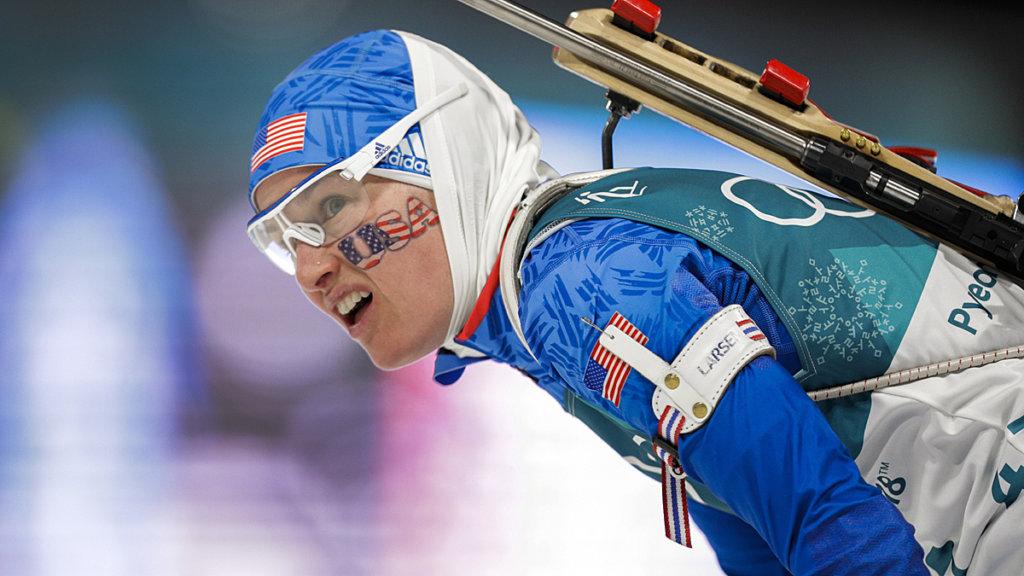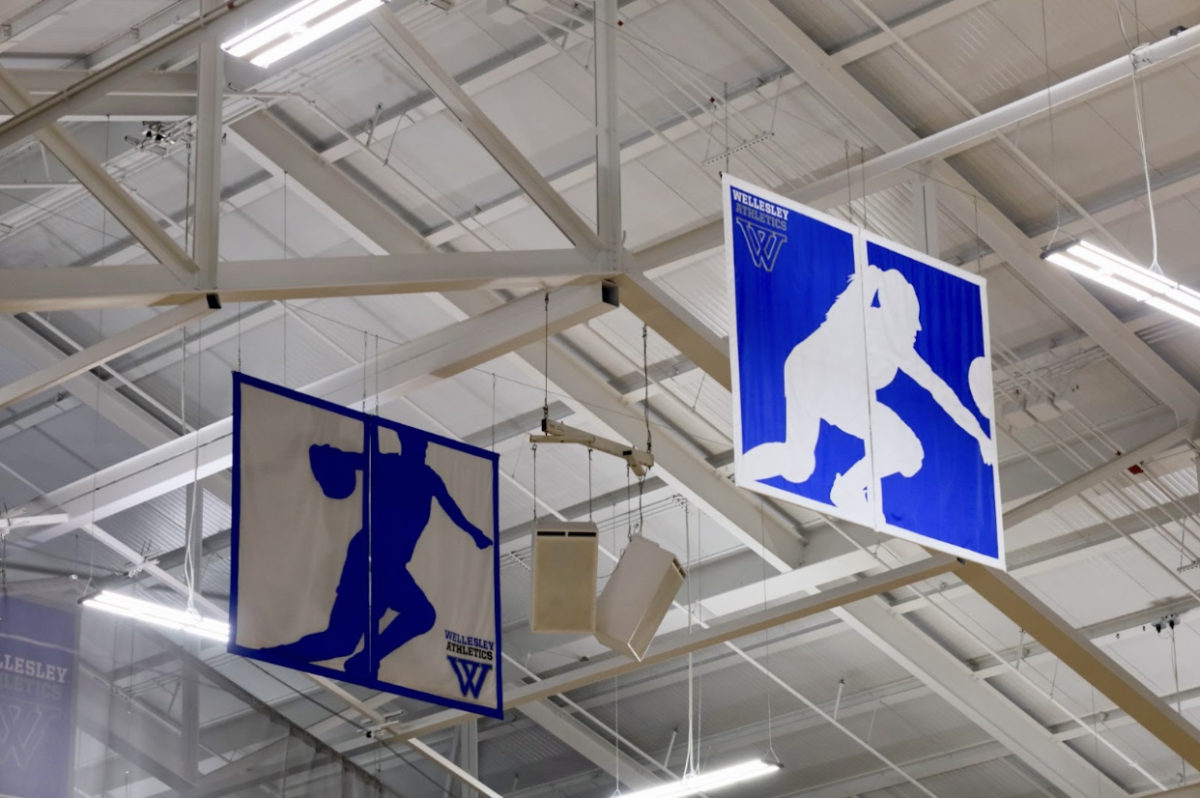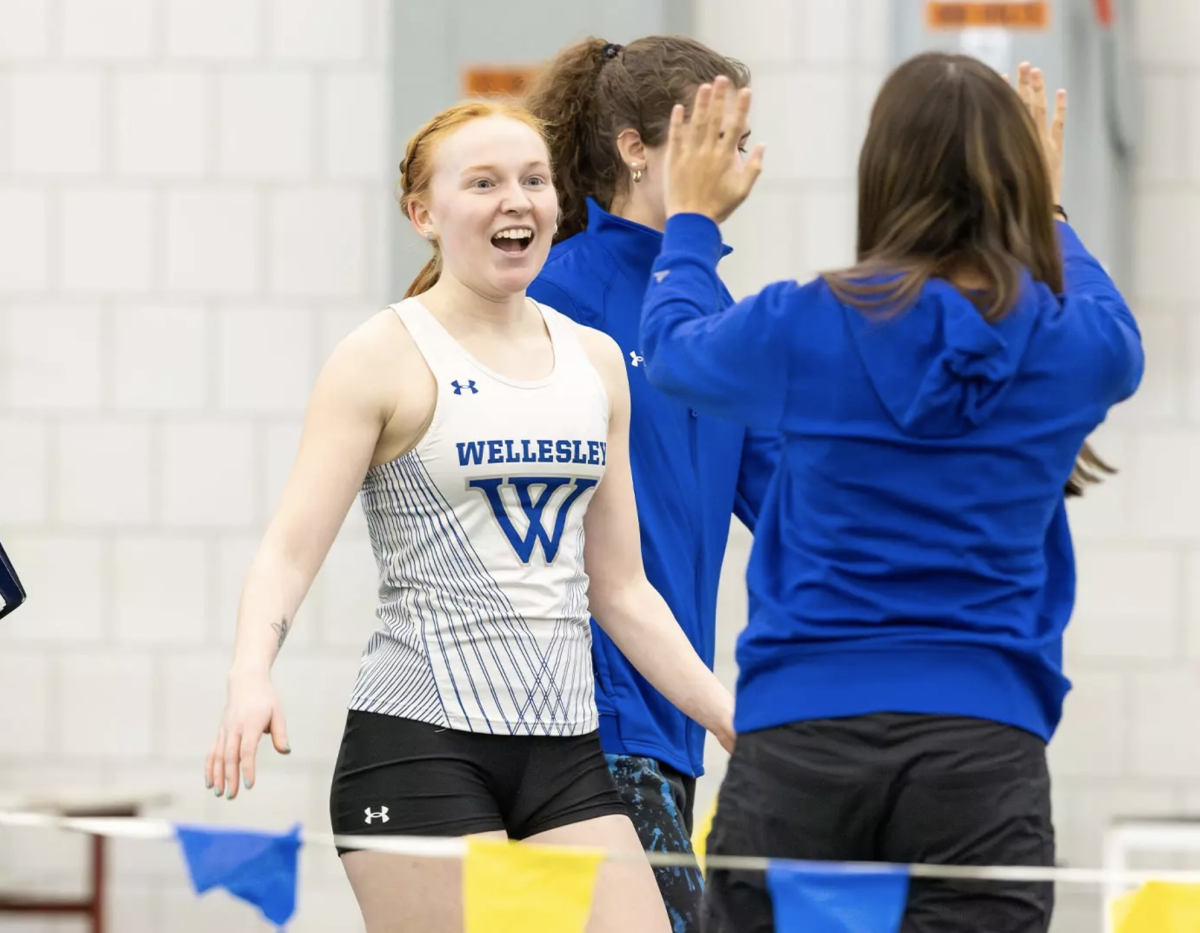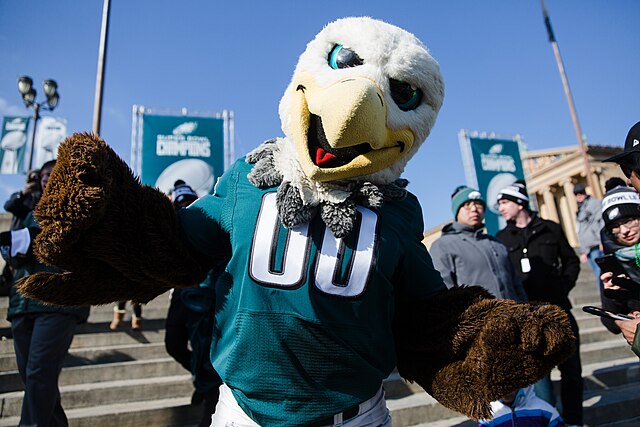Clare Egan ’10 recently became Wellesley’s third Olympian and its first U.S. Olympian competing in the Biathlon, a sport that combines cross-country skiing with rifle shooting. Colette Flesch ’60 fenced for Luxembourg in the 1960, 1964 and 1968 Olympics, and Isheau Wong ’11 represented Chinese Taipei in equestrian in 2016.
Egan is from Cape Elizabeth, ME, where she began cross country skiing in middle school. As a high school student, she was a Maine state champion and a two-time member of the New England Junior National team. When she arrived at Wellesley, she founded the school’s Nordic Ski Club, majored in International Relations and ran cross country and track, the sport in which she was Wellesley’s first All-American. Egan is still Wellesley’s only cross-country runner to have claimed both conference runner and rookie of the year titles and Seven Sisters individual champion honors in the same season.
Egan made her Olympic debut on Feb. 12 in Pyeongchang, South Korea, where she competed in the women’s 7.5 km sprint. She finished with a time of 23:51.6, earning her 61st place overall and missing qualifying for the Pursuit race, which is 10 km for women, by one place.
Two days later, Egan participated in the Women’s 15 km Individual. She completed the event with a time of 48:00.8 and finished 62nd overall.
Egan’s final event in her first Olympic Games took place on Feb. 22. She competed in the Women’s 4 x 6 km relay with her teammates Susan Dunklee, Joanne Reid and Emily Dreissigacker. The squad completed the event with a time of 1:14:05.3 and finished 13th overall.
We interviewed Egan about her introduction to biathlon, her experiences at Wellesley and her Olympic journey.
How did you first get involved with Biathlon?
After college, I joined a Vermont-based elite cross-country ski team called the Craftsbury Green Racing Project. We trained full-time and worked part-time at the Craftsbury Outdoor Center in exchange for all of our living and skiing costs. A few of my teammates had transitioned from skiing to biathlon, and I followed their footsteps, eventually earning a spot on the U.S. Biathlon Team.
How did competing for Wellesley’s Cross Country and Track teams and attending Wellesley in general prepare you for the Olympics?
My athletic career at Wellesley played a pivotal role in my later success, but not in the way you might think. When I chose to go to Wellesley over Division I schools that had offered me running or skiing scholarship, I made a choice against sport specialization in the name of education and diversity. At Wellesley, I enjoyed the relative freedom and autonomy that comes with being a Division III student-athlete: I sang in the College Choir, studied abroad my whole junior year, visited friends and family on weekends and chose classes without any restriction imposed by my sports schedule. After having four years to think about it, I was ready to make athletics a bigger priority, so I decided to use my last year of NCAA eligibility as a Division I athlete and graduate student at UNH. They paid for my tuition, so the team came first. I couldn’t take classes on Thursdays, Fridays or after 12 p.m. on Tuesdays because of our training schedule. I loved it, and eventually, it grew into my full-time job. In the eight years since I graduated from Wellesley, I’ve defined myself as an athlete, committing 100 percent to the all-encompassing pursuit of reaching my maximum physical and psychological potential. Without the solid, well-balanced foundation I built at Wellesley, I think I would have burnt out long ago.
What were some of the biggest obstacles you faced leading up to the Olympics?
The biggest hurdle has been keeping it fun. Committing to this lifestyle requires a level of passion that most other jobs do not because there is no financial reward. The vast majority of aspiring U.S. Olympic athletes are not compensated for doing their sport. Until two years ago, I was not paid; now I make about $14,000 dollars a year. So it has to be rewarding in other ways; it has to be fun. I spend about seven months of the year on the road, I am not in charge of my own schedule, I train six days a week and don’t have weekends or holidays off. Ultimately, my reward is that I’m an Olympian: totally intangible and totally worth it. But keeping my fire burning within for the past decade was not easy, especially when there was never any guarantee that I would make the Pyeongchang 2018 team. For every person who qualifies, there are hundreds who don’t. So on a daily basis it needs to be fun, and it often was not.
What challenges did you face during your time in South Korea?
I got the flu about two weeks before the opening ceremony and missed our entire 10-day final preparations training camp. I’ve never missed that many days of training due to illness in my entire career. Luckily, I was healthy by the time the Games began, but I was certainly not in peak physical form. I also crashed in my opening race, and as a result, missed qualifying for the next event. Both the illness and the crash were just bad luck and bad timing.
What motivates you?
I’m motivated by the coach who believes in me, by my duty to be steadfast teammate, by a will to seize the day and by the joy I get from blowing people away.
What were some of the most memorable moments of your Olympic journey?
I’ll never forget marching in the opening ceremony or hitting all 10 of my targets for a perfect race in the women’s relay.
What are your plans for after the Games? Are you planning to return in four years?
I have five more weeks on the road for Biathlon World Cup racing! I race in Finland, Norway and finally Utah. Then I have some time off in April, and I need to decide whether I am continuing or retiring!
The Wellesley community is so proud of everything that you have accomplished! What has its support meant to you?
The video Wellesley made for me was the most moving gesture of support I’ve received. There’s nothing stronger than women together!
What advice do you have for student at Wellesley?
Carpe diem, sisters.




